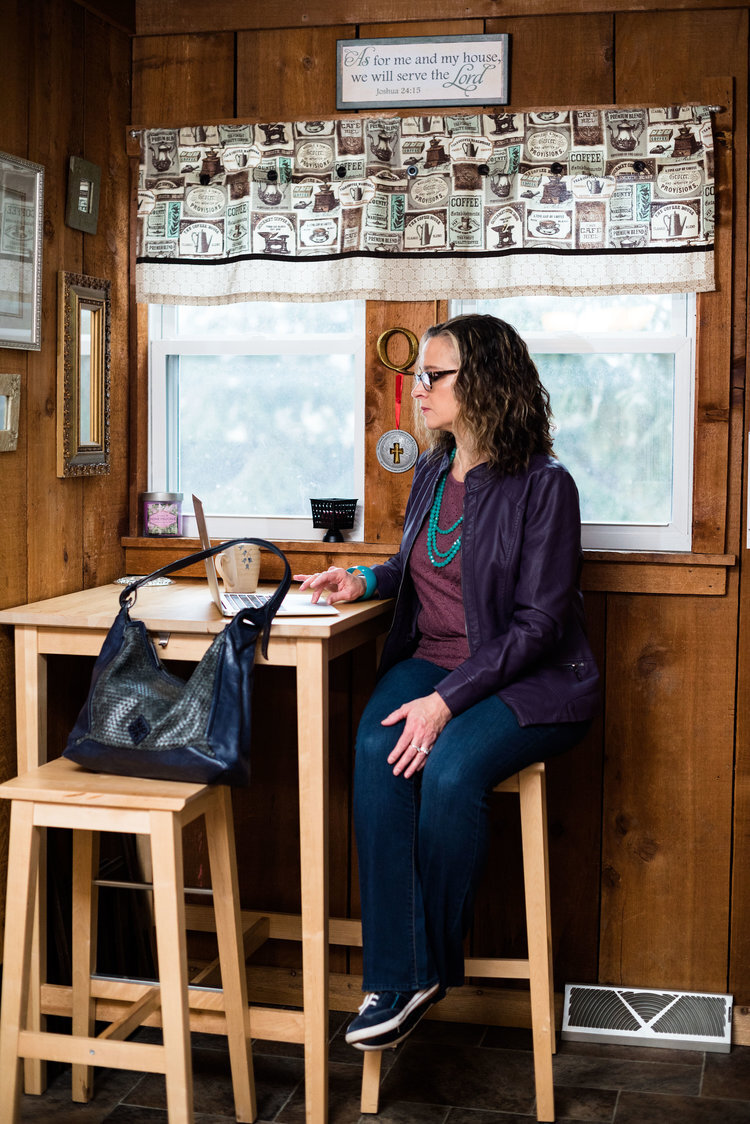A Year of Waiting - Pause
If you have been following me since the beginning of this year, I chose the word, wait as my word of the year. After I chose the word, I thought it would be a good idea to devote one Faith post a month to this idea of waiting. In mulling the idea over, I thought it would be interesting to look at different definitions and nuances of the word wait, after all, waiting isn’t just about standing in line to get tickets to see your favorite band, or board your flight. Waiting is a time consuming part of our lives, and I feel it deserves a weightier look. Ha, ha. See what I did there?
Image by Alana Jordan from Pixabay
Let’s look at the definitions for the word pause as given in Webster’s Online Dictionary.
As a noun:
1 - a temporary stop
2 - a - a break in a verse
b - a brief suspension of the voice to indicate the limits and relations of sentences and their parts.
3 - temporary inaction especially as caused by uncertainty: Hesitation
4 - a - the sign denoting a fermata (music related)
b - a mark (such as a period or comma) used in writing or printing to indicate or correspond to a pause of voice
5 - a reason or cause for pausing (as to reconsider)
6 - a function of an electronic device that pauses a recording
As a verb:
Intransitive -
1 - to stop temporarily
2 - to linger for a time
Transitive -
to cause to pause: stop
Let’s pause at the word pause. Ha, ha. I think it would be good to temporarily stop, and hesitate when it comes to considering the word pause; a word we really don’t think much about. We often view a pause as an interruption, but a pause is often necessary to be able to think, take a new direction, or find peace and restoration.
Image by Gerd Altmann from Pixabay
When my first grandson came along, I became familiar with Time Out’s, a discipline method that is still used by many parents today. The purpose of a Time Out is to allow the child to not only think about what they have done wrong, but give them time to cool down if a situation has become volatile. I think this is a well intended method, and preferable in many ways to a spanking or some other form of physical punishment. I know for my grandson it was fairly effective in curbing misbehavior, though I don’t know for sure what he was thinking about during the Time Out. Ha, ha.
A Time Out is a good way to think of the word pause. It is a time to pull away and think about things. We see that Jesus gave us the same type of example when He would get away by Himself to pray. He paused His busy activities of healing people, teaching his disciples, and making new followers to get away and think, breath and pray.
“36 Then Jesus came with them to a place called Gethsemane, and said to His disciples, “Sit here while I go over there and pray.””
“In the early morning, while it was still dark, Jesus got up, left the house, and went away to a secluded place, and was praying there.”
“But Jesus Himself would often slip away to the wilderness and pray.”
Image by Sonam Prajapati from Pixabay
While the Bible does not specifically use the word pause as we know and use it, there is the use of a Hebrew term in the book of Psalms and Habakkuk that literally means, think about it. This is the word, Selah.
“Who is this King of glory? The Lord of hosts, He is the King of glory. Selah.”
“I acknowledged my sin to You, And my iniquity I did not hide; I said, “I will confess my transgressions to the Lord”; And You forgave the guilt of my sin. Selah.”
“The Lord of hosts is with us; The God of Jacob is our stronghold. Selah.”
“God comes from Teman, And the Holy One from Mount Paran. Selah. His splendor covers the heavens, And the earth is full of His praise.”
The word, Selah is used 71 times in the Psalms and 3 times in the book of Habakkuk. Obviously, the Psalmist thought it was important to use this phrase often. He wanted us to think about all that God had done, both the rescuing and the judging because both are very important to remember.
If you find yourself in a time of waiting think about how you can see this as a time to pause. A good idea might be to keep a journal where you can think about why God might have you in a waiting period. You could use journalling as a time to pause from the busyness of life to pray, think, and consider. There are so many reasons God might want you to take a Time Out. These are just a few:
1 - Rest.
Image by DanaTentis from Pixabay
I mentioned this in my initial post in January, Word for 2024: Wait. As women, and Christ followers it is not uncommon to burn ourselves out. We are constantly doing, giving, helping, working; often with little time to catch our breath, let alone do something for ourselves. Let’s face it, we barely even pray for ourselves. We fail to process our emotions, because we are always helping others to carry or process their emotional loads. Even when we lay down at night we run through our to do lists, and before we get up in the still hours of the morning we are praying for all our wandering lambs.
I just turned 60, and I am only beginning to understand this is not really what God wants for us. We are God’s creation. God is the heavy lifter, I am but dust. Perhaps if I became more acquainted with this mighty, omnipotent being I would spend more time relishing the practice of His presence in worship and adoration, rather than trying to solve every problem for everyone we love and care for. God will work it out. He alone is able.
This being said, I know how hard this is. Letting go and actually resting is probably the hardest thing we can do, especially as mothers. It took a major illness to change my way of thinking, and even now I still struggle against this trending current; this current that says you only have value if you are doing and being. However, it was during the time I was down and out that I heard and saw the love and provision of the Lord in a new and deeper way. And, He’s not done yet. I am still learning how to rest, how to take time for myself, how to spend more time with Him, and how to let go of all of the preconceived notions of what gives me value.
2 - To change our thought patterns.
Image by Gerd Altmann from Pixabay
As used in the book of Psalms, and Habakkuk, taking a moment to think about what the scripture was saying was important enough to include the term, Selah. Perhaps our waiting time is not just about rest, but about changing the way we think, or taking us back to thinking about what is really important.
A time of illness, recovery, or job loss can certainly give you ample opportunity to think. The important thing is that we think about the right things. Am I thinking about my struggles, or am I thinking about God’s goodness? Am I dwelling on my anger, or thinking about God’s provision? Am I tempted to continue in a behavior or a wrong way of thinking, or am I ready for God to bring about change?
The best way to change our thought lives is through regular reading and study of God’s Word, and through the mindset of choosing gratitude and joy.
3 - To change our actions.
Just like a child being sent into a time out, God will often use times of waiting or times of pause to gently turn us away from bad or unproductive behaviors towards truth in Him which will also cause changes in our actions. As Christ followers we should always be growing and changing to become more like Christ, and that may involve changing many of our fleshly behaviors.
Since I lost my job in 2019, and went through a health crisis in 2021, I have had a lot more time to spend reading, and studying God’s word. I am not a very disciplined person, so I don’t regularly get up in the wee hours of the morning to have my quiet time, but lately, the Lord seems to be waking me up earlier, even when I feel dog tired (and these days that is a regular occurrence) so I can have that time with him. I believe God knows our hearts and our circumstances. If we are open to His work in our lives, He will bring it about.
If you are in a situation right now where you are waiting, consider it a pause. Linger over your Heavenly Father and get to know Him better. This will always help you feel more content while you are waiting.
Have a great day.














































